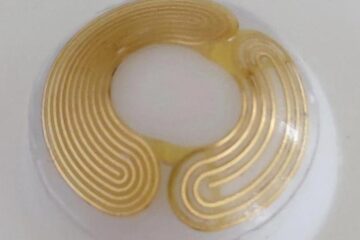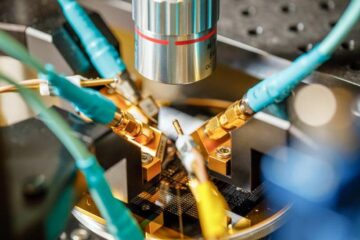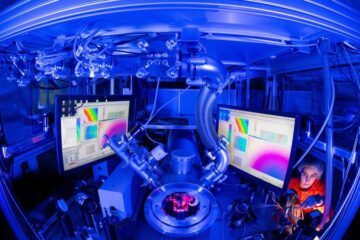T for two: scientists show how immune system chooses best way to fight infection

T cells are produced by the body to fight infection. Scientists previously identified two types of T cell, both produced in the thymus: “effector T cells”, which attack infected cells, and “regulatory T cells”, which suppress the immune system, protecting the body from inflammatory damage during infection. Regulatory T cells, if given to individuals receiving transplants, may help suppress the rejection response.
Now, a team of researchers has discovered a novel mechanism determining whether a maturing T cell is likely to emerge from the thymus as an effector cell or a regulatory cell. The research suggests that new treatments could be developed to deliberately affect the type of T cells produced, allowing scientists to tackle a number of diseases which are influenced by these different types of T cells.
“Our team has shown that a process known as 'trans-conditioning', which we knew to be involved in T cell development, actually has a profound influence on whether a T cell becomes an effector or a regulatory cell,” explains Professor Adrian Hayday of King's College London. “This may be clinically significant; if we can find a way to influence this process, it may be possible to make the body produce effector T cells in a cancer patient or regulatory T cells in someone suffering from autoimmune disease, both of which are caused by the immune system malfunctioning.”
Professor Hayday and his team believe that the findings may also answer one of medical research's mysteries: why autoimmune diseases in women commonly go into remission in pregnancy.
“We believe that trans-conditioning is less active during pregnancy,” says Professor Hayday. “This means that most T cells emerging at that time will be regulatory. Regulatory T cells prevent an over-active immune system from causing inflammatory damage to the body. This may be one of the key steps in preventing the mother from rejecting the foetus growing inside her.”
The research was carried out at the King's College London School of Medicine at Guy’s Hospital and was co-lead by Dr Daniel Pennington, a Wellcome Trust VIP awardee and now at Queen Mary, University of London. Collaborating researchers were based at Faculdade de Medicina de Lisboa, Lisbon; University College, London; Yale University School of Medicine; Institute for Animal Health; and Imperial College London.
Media Contact
All latest news from the category: Life Sciences and Chemistry
Articles and reports from the Life Sciences and chemistry area deal with applied and basic research into modern biology, chemistry and human medicine.
Valuable information can be found on a range of life sciences fields including bacteriology, biochemistry, bionics, bioinformatics, biophysics, biotechnology, genetics, geobotany, human biology, marine biology, microbiology, molecular biology, cellular biology, zoology, bioinorganic chemistry, microchemistry and environmental chemistry.
Newest articles

‘Smart’ contact lenses could someday enable wireless glaucoma detection
Most people with early-stage glaucoma don’t know they have it, even though early treatment is key to reducing vision loss. While detecting a subtle increase in eye pressure helps doctors…

New tech may lead to smaller, more powerful wireless devices
Good vibrations… What if your earbuds could do everything your smartphone can do already, except better? What sounds a bit like science fiction may actually not be so far off….

Caution, hot surface!
An international research team from the University of Jena and the Helmholtz Institute Jena are demystifying the mechanisms by which high-intensity laser pulses produce plasma on the surface of solids….





















